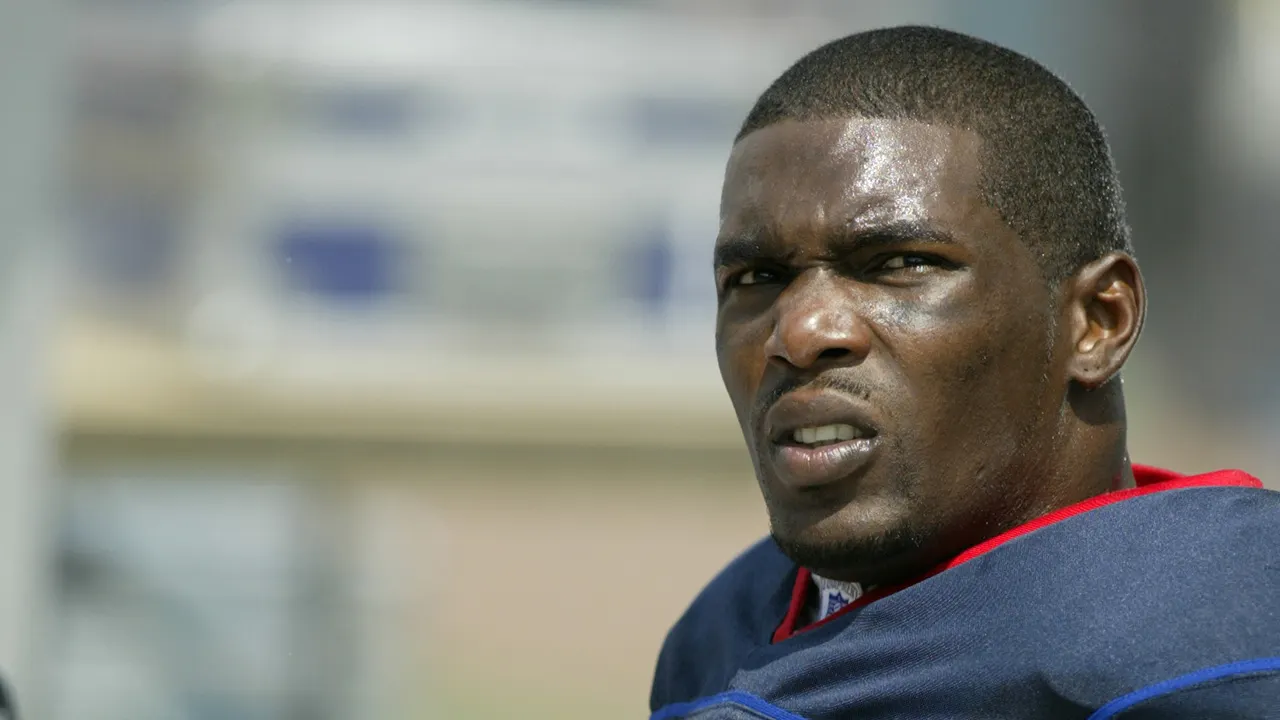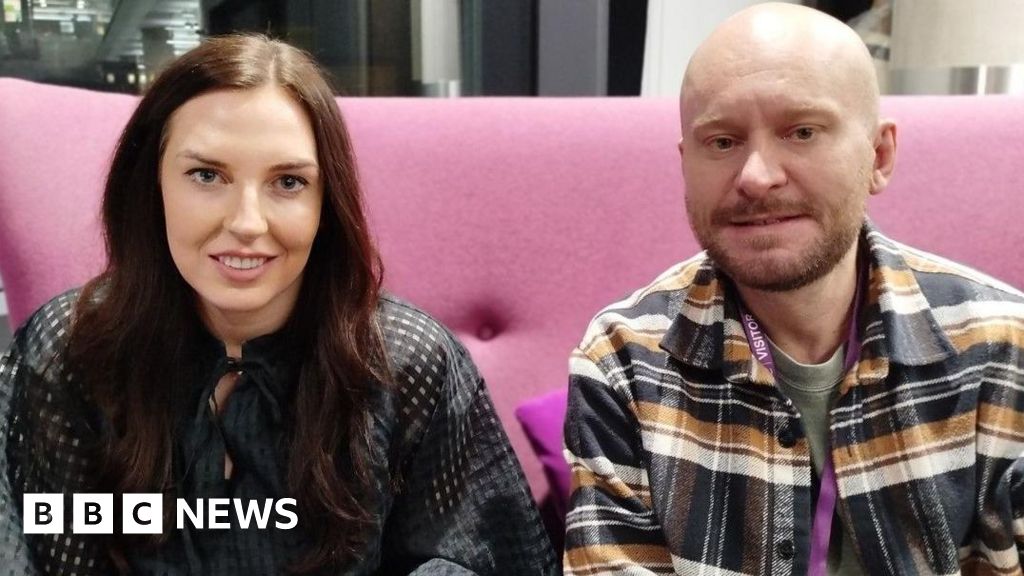“It was very unnerving, at best, to just suddenly have very little control over the notes that were coming out of my mouth,” says the 30-year old indie folk singer, who performs under the mononym Anjimile, as he relaxes on a cafe patio in Brooklyn during a recent visit to New York. Coming out as transgender was part of a lifesaving process, but it meant radically altering who he was as an artist. “My confidence was very low,” he admits.
On “The King,” his sophomore LP that releases Sept. 8 and has already gathered praise from the mainstream and indie press, Anjimile’s voice is the pivot point upon which all else turns — a dexterous, marvelous instrument, one capable of strange depths and eerie highs that reach to the spirit world and beyond. The way his falsetto cracks and crumbles is at times incandescent, at others raw and blistering. Over the course of the album’s 10 tracks, he erects a dizzying soundscape with little more than that voice and an acoustic guitar, twisted and transfigured into unsettling shapes.
Through a careful regimen of YouTube tutorials and vocal exercises, Anjimile learned the limits of what he could now do. “I have new tricks that I couldn’t do before,” he says. “I have a new range, and I have a greater understanding of how to access that range in a way that feels good to me.” While his voice had dropped before his debut, 2020’s “Giver Taker,” it only became his again during the creation of The King.
With the full fury of Anjimile’s new voice harnessed, “The King” hurtles headlong into dark territory, bleeding with wounds opened and reopened over the past few years — by life in the pandemic, Black Lives Matter protests or the right-wing campaign to restrict trans rights. Little surprise that one of the most halting songs, “Animal,” was written after the murder of George Floyd, which Anjimile says prompted “pure, unadulterated rage.”
“It was horrible. The footage is horrible,” he says. “I found the commentary to be horrible, and I found the spectacle to be repulsive.” As he speaks, Anjimile swivels his head in thought, rubbing his neck or the patch of hair sprouting on his chin. “So yeah, there was a lot of disgust, anger. And also, I was just scared.”
“Animals” was one of three songs written in as many days, together with “Genesis” and “The Right.” Through them, the anger gives way to grief, and then to fear. “It was a new artistic experience to be expressing anger through songs. It wasn’t something I had done before, or felt comfortable doing,” Anjimile says. Learning to do so, however, felt “empowering.”
The title track, which opens the album, channels that anger in a subtler, but no less affective, manner. It was the first song Anjimile recorded after he and his producer, Shawn Everett, convened in Los Angeles. “The King” builds a uniquely haunting, elliptical pattern, a swirl of cooing voices and skittering percussion (a studio trick, in fact, created with acoustic guitar) that became the blueprint for the album. “It felt like the most powerful musical statement to me,” he says.
It’s impossible not to relate “The King” to the turmoil of the moment it was born from, or from the realities of its creator living in the current world — as a Black man, or as a queer or transgender person. But Anjimile, who lives in North Carolina, says his work comes from a personal place first. “It’s got some big feeling that needs to come out,” he insists. “At the same time, I do feel like it’s important for any artist to sing or speak on social justice and social injustice.”
Another trio of songs — “Mother,” “Anybody,” and “Father” — address the difficulty of coming out as transgender to his family. “Father,” which is told from his mother’s perspective, was the first song written for the album, while Anjimile worked at an LGBTQ summer camp in 2019. Having grown up in the Presbyterian church, one of four children of Malawian immigrants, Anjimile found the news drove an irrevocable wedge between him and his mother. The two are still not on speaking terms, three years later.
“I think a lot of this music is a way for me to come to terms with her transphobia, because I have no interest in attempting to change her belief system in any way,” Anjimile says. “I also don’t have the energy. So it’s just me accepting her, which for me means not having her be a part of my life.”
Getting to the point of speaking those personal truths meant walking a years-long path to self-acceptance. Before his transition, Anjimile struggled with severe alcoholism starting from the age of 16 (“It was, like, a full-time gig,” he says), finally entering a rehab center in Florida seven years later in 2016. During the recovery process, he faced crippling feelings of guilt and shame over his addiction. He recalls reading one particular piece of literature shortly after entering the clinic.
“It was like, ‘Everybody is deserving of love, and everybody is deserving of peace and happiness,’” he says. “And I started crying. Because I didn’t believe that to be true of myself.”
That journey of recovery is embedded in the DNA of “The King,” often in conversation with Anjimile’s attempts to grapple with what has taken place in the wider world. “Genesis,” for instance, is a plea wrought from the public annihilation of Black lives. It’s also an expression of the power to be found in feeling one’s pain, rather than hiding from it.
“I’m allowed to fall apart when I feel bad — about anything,” Anjimile says. “I’m allowed to feel overwhelmed. It look me a long time to learn that it’s okay to not be okay sometimes.”















































